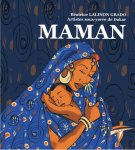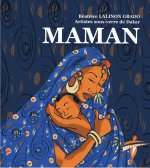
Algiers, Tlemcen, Angers, Saint-Etienne, Firminy, Yaounde, Bamako, Philippe Dauchez, in all these cities, played of his art, theatre, as an actor, director or professor.
Once working with Albert Camus as an assistant, he was always impassioned for the integration of theatre in the City in all its forms, classical, popular, traditional... From large French scenes to Malians villages, he has always worked with the same simplicity and the same commitment. This book recalls his history, his passion for life, theatre and people, in a text which makes cross the intimacy and the universal, history and everyday life, erudite theatre and popular art. Pierre Chambert draws up us a poetic portrait of a man who put his very whole life at the service of a useful theatre.
Pierre Chambert, a poet and a writer, is an inspector-advisor for theatre and performing arts at the French Ministry of Culture and Communication. He is currently posted in Guyana, near Amazonia, its legends and its storytellers.
Year of publication: 2006, 256 pages






























